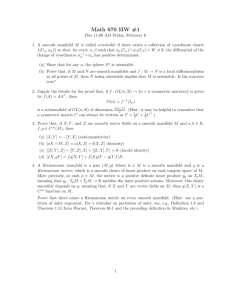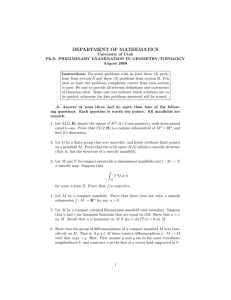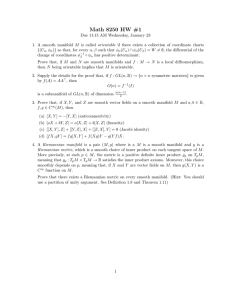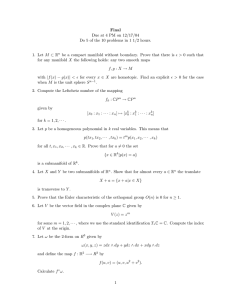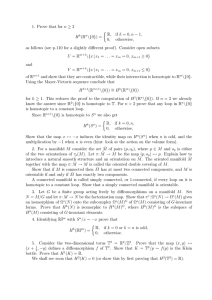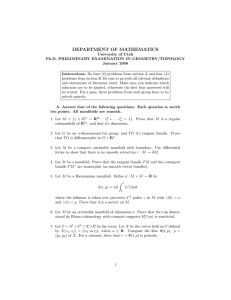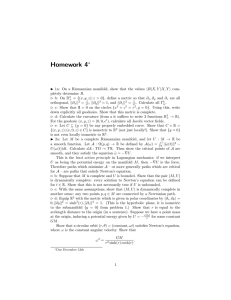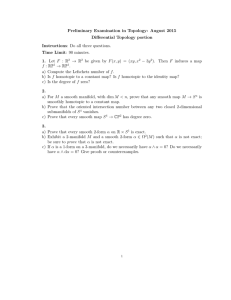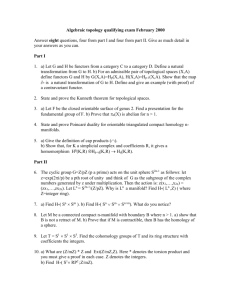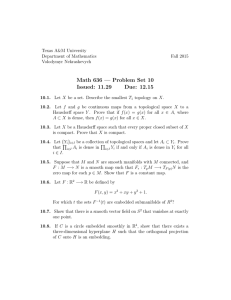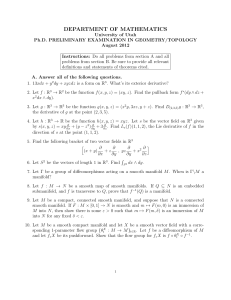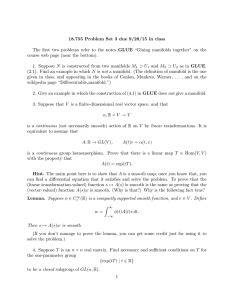Topology Qual, Algebraic Topology: Summer 2012
advertisement
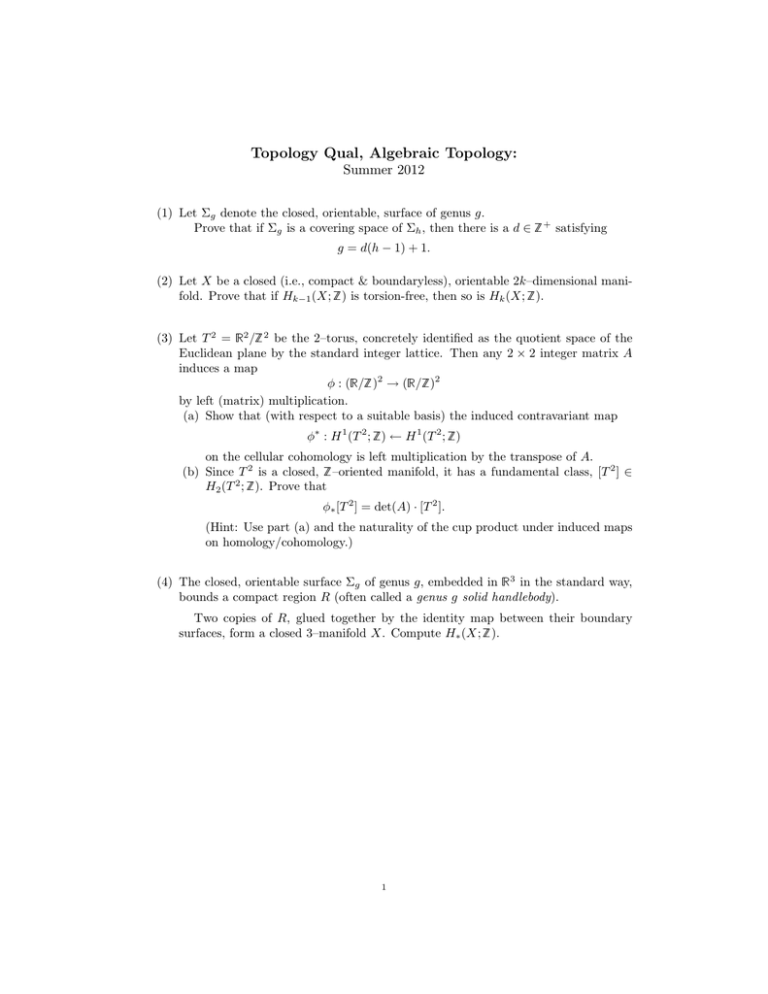
Topology Qual, Algebraic Topology: Summer 2012 (1) Let Σg denote the closed, orientable, surface of genus g. Prove that if Σg is a covering space of Σh , then there is a d ∈ Z+ satisfying g = d(h − 1) + 1. (2) Let X be a closed (i.e., compact & boundaryless), orientable 2k–dimensional manifold. Prove that if Hk−1 (X; Z) is torsion-free, then so is Hk (X; Z). (3) Let T 2 = R2 /Z2 be the 2–torus, concretely identified as the quotient space of the Euclidean plane by the standard integer lattice. Then any 2 × 2 integer matrix A induces a map φ : (R/Z)2 → (R/Z)2 by left (matrix) multiplication. (a) Show that (with respect to a suitable basis) the induced contravariant map φ∗ : H 1 (T 2 ; Z) ← H 1 (T 2 ; Z) on the cellular cohomology is left multiplication by the transpose of A. (b) Since T 2 is a closed, Z–oriented manifold, it has a fundamental class, [T 2 ] ∈ H2 (T 2 ; Z). Prove that φ∗ [T 2 ] = det(A) · [T 2 ]. (Hint: Use part (a) and the naturality of the cup product under induced maps on homology/cohomology.) (4) The closed, orientable surface Σg of genus g, embedded in R3 in the standard way, bounds a compact region R (often called a genus g solid handlebody). Two copies of R, glued together by the identity map between their boundary surfaces, form a closed 3–manifold X. Compute H∗ (X; Z). 1 GT Qual 2012 (Spring) Part II Show All Relevant Work! 1) Consider stereographic projection of the unit circle S 1 in R2 to R from the North Pole (σ) and from the South Pole (σ̃). a) Show that σ̃ ◦ σ −1 (x) = 1/x d b) Consider the smooth vector field dx on R. Using σ, this induces a smooth vector field on the circle minus the North Pole. Can it be extended to a smooth vector field on all of S 1 ? 2a) A smooth map F : M → N is a submersion if... b) Let M be a compact, smooth 3-manifold. Prove that there is no submersion F : M → R3 . 3) Consider D the open unit disk in R2 with Riemannian metric g=( 2 2 2 ) dx ⊗ dx + ( )2 dy ⊗ dy 2 2 2 2 1+x +y 1+x +y a) Write down an (oriented) orthonormal frame (E1 , E2 ) for D with respect to this metric. b) Write down the associated dual coframe (1 , 2 ). c) Compute 1 ∧p2 . Is this the Riemannian volume form (that is, does it agree with the volume formula det(gij )dx ∧ dy)? d) Compute the volume (area?) of D with respect to this metric. e) What have you computed? 4) Suppose that f0 and f1 are smoothly homotopic maps from X to Y and that X is a compact k-dimensional manifold without boundary. a) Complete the sentence “f0 and f1 are smoothly homotopic maps from X to Y means that there exists a function F from ...” R R b) Prove that if ω is a closed k−form on Y then X f0∗ (ω) = X f1∗ (ω).
